Advocacy in action at Rare Disease Week
November 2024On 18 November 2024, EURORDIS-Rare Diseases Europe will launch the third edition of Rare Disease Week (RDW) in Brussels. Since 2021, this programme has equipped rare disease advocates with essential skills, knowledge, and networks to amplify their voices in EU policy.
Next week, RDW 2024 will provide patient advocates with a rare opportunity to meet newly elected Members of the European Parliament (MEPs) and representatives from the European Commission and the European Economic and Social Committee (EESC). The timing is opportune, with a new European Parliament, the reappointment of Ursula von der Leyen as President of the European Commission, and ongoing Commissioner appointments, creating an ideal moment to keep rare diseases high on the EU agenda.
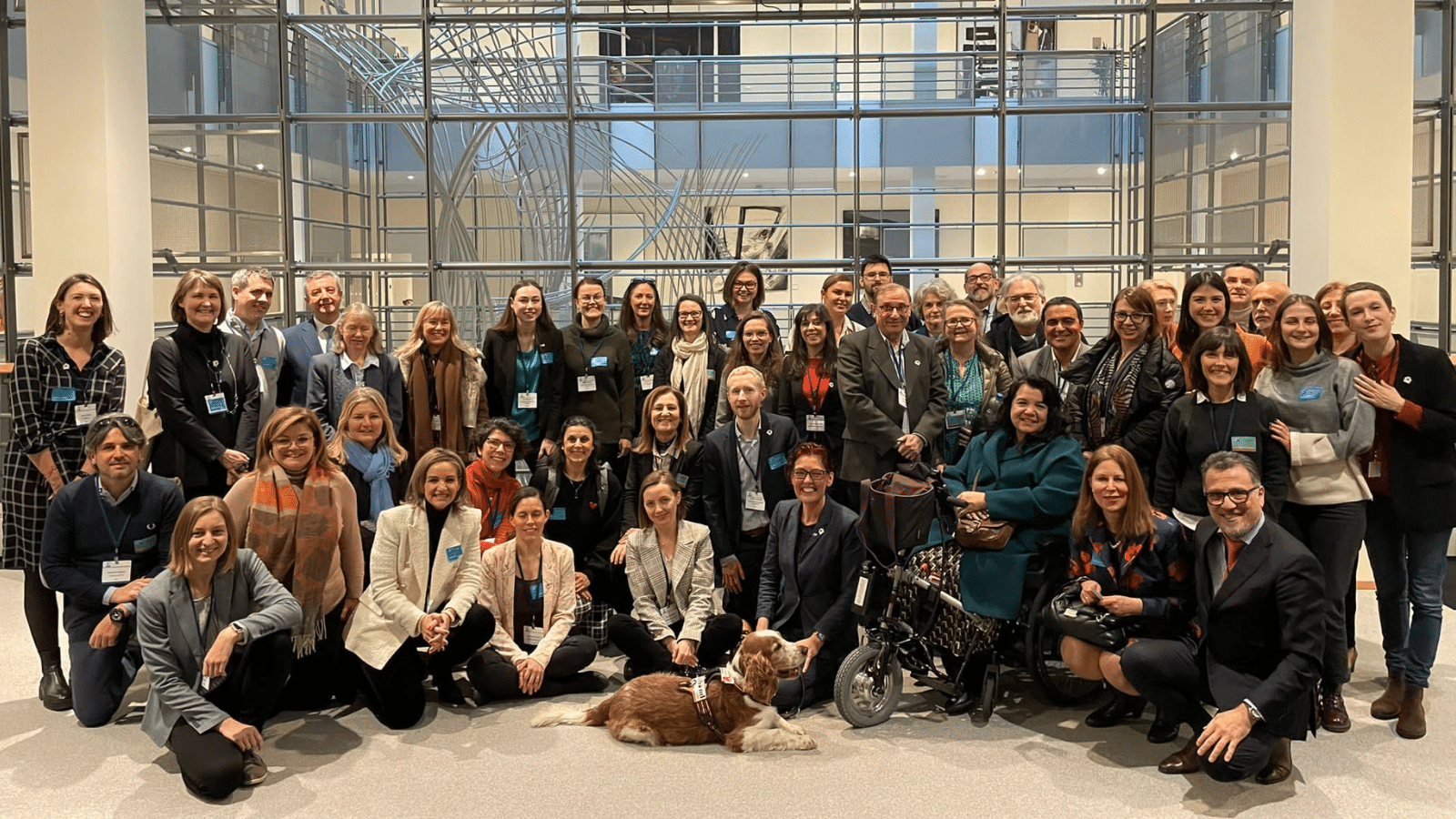
Participants at Rare Disease Week 2023 gather for a group photo in the European Parliament in Brussels.
Despite increased cross-institutional support for advancing rare disease policy, the EU is facing proposed cuts to Horizon Europe and EU4Health, which could severely hinder progress in research, treatment, and healthcare. RDW 2024 is therefore more critical than ever as a platform to empower advocates and reinforce partnerships with EU policymakers.
We take a look at the RDW 2024 sessions and revisit the positive impact that last year’s training had on participants.
An immersive programme for empowerment
RDW 2024 combines direct policy advocacy with hands-on training, offering participants an in-depth understanding of the EU legislative process, personal meetings with MEPs, and decision-making simulations.
For many advocates at RDW 2023, these interactions proved transformative.
“Reflecting on my participation in the Brussels Rare Disease Week 2023 the key word that comes to mind is empowering,” says Lyndsey Walsh from Rare Ireland.
For Lyndsey, Rare Disease Week “championed the value of our own lived experiences and stories.”
“As the parent of a child who is non-speaking, the privilege of being able to use my voice to share our story and highlight issues affecting the rare disease community was powerful. Many individuals within the rare disease community often go unheard and unseen,” she said.
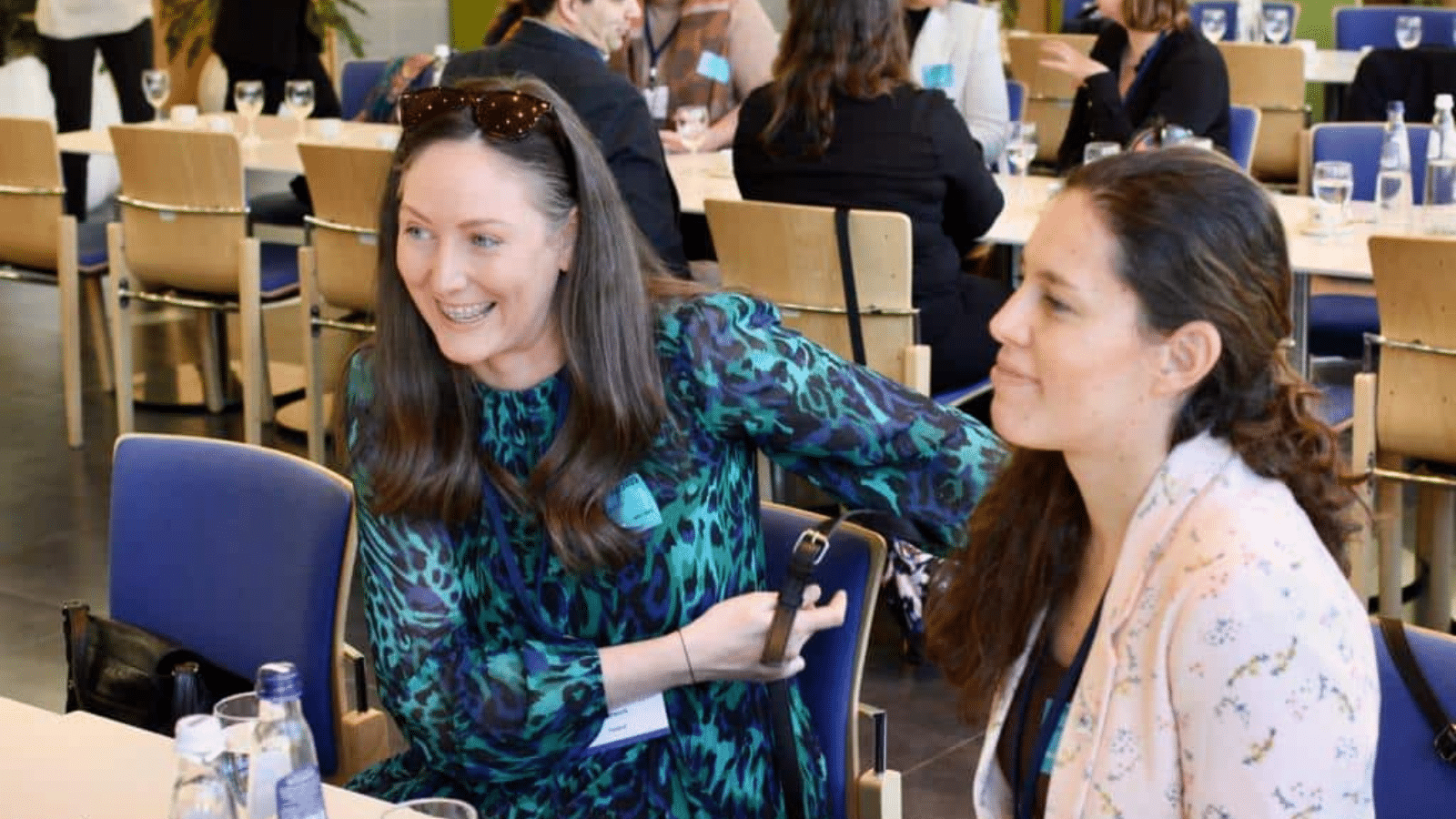
Lyndsey Walsh of Rare Diseases Ireland at lunch in the European Parliament with fellow RDW 2023 participants.
“To use my voice at a European level to highlight the barriers that my daughter and thousands of others like her face was really meaningful. I have to admit I was nervous as I had never advocated at this level before, and I had brought along a photograph of my daughter. I usually do this whenever I feel out of my comfort zone as it reminds me of how much she must come out of hers every day in a world that can sometimes be very challenging for her.
“It ended up being a very humanising part of our meetings with the MEPs and served as a powerful reminder of the people behind the stories.”
“What stood out for me was the knowledge that EURORDIS empowered us advocates with in terms of sharing our stories, highlighting the issues, but also effectively describing how our MEPs could become allies and support policy changes. It gave me the confidence to continue my advocacy efforts at a local, regional, national and international level.”
Since Rare Disease Week 2023, Lyndsey has joined multiple patient advocacy forums, including the Rare Disease Patient Forum supporting the new National Plan for Rare Diseases in Ireland.
Oriana de Sousa, a rare cancer advocate from Portugal, said she “decided to attend Brussels Rare Disease Week as I felt it was imperative to join forces and call for change with fellow people from the rare disease community.”
Oriana found the EU decision-making simulation particularly enlightening and empowering: “The role-play in the Parlamentarium, where we debated policy as Members of the European Parliament, was a particularly funny and vivid memory.”
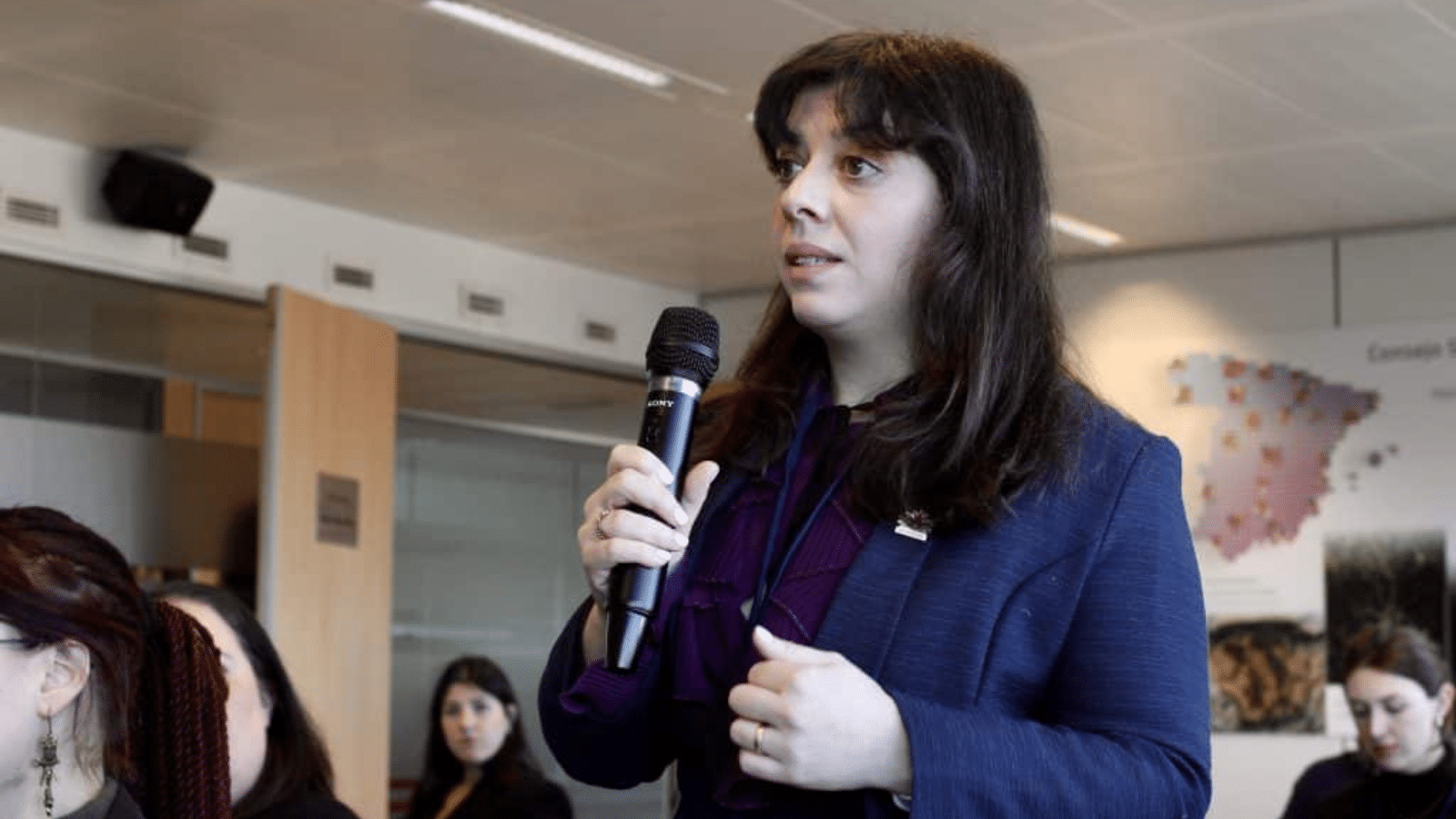
Oriana de Sousa, a rare cancer advocate, poses a question to the former Spanish Presidency of the Council of the EU during RDW 2023.
For Oriana, the personal meetings with MEPs were also significant: “The meetings with MEPs felt like we were on a mission, putting our soul into the effort of making an impact, balancing our nerves with the weight of the issues to address and the responsibility of representing our community’s urgent needs.”
For advocates like Lyndsey and Oriana, RDW 2023 not only inspired but equipped them with the confidence and skills to drive meaningful change both at home and across the EU.
Building connections and learning from each other
RDW fosters a close, pan-European community of rare disease advocates. For many 2023 participants, the connections they built were as impactful as the skills they gained.
Ruth Biller, from ARVC-Selbsthilfe in Germany, shared how deeply this experience resonated, particularly due to her personal journey. “In 2011, my eldest daughter died of sudden cardiac death at the age of 14. A year later, we received the diagnosis: arrhythmogenic right ventricular cardiomyopathy (ARVC), a rare genetic heart disease,” she shared.
Ruth co-founded ARVC Self-Help, initially focusing on information and support. “Now we want to improve the lives of our patients who live with the burden of a genetic disease and the constant fear of sudden death. We really want to change the world for them!”
Reflecting on her RDW experience, Ruth said, “There were many [favourite moments]! Personal meetings with MEPs, visiting the impressive hemicycle, and getting an idea of how the EU works in the role-play game.”
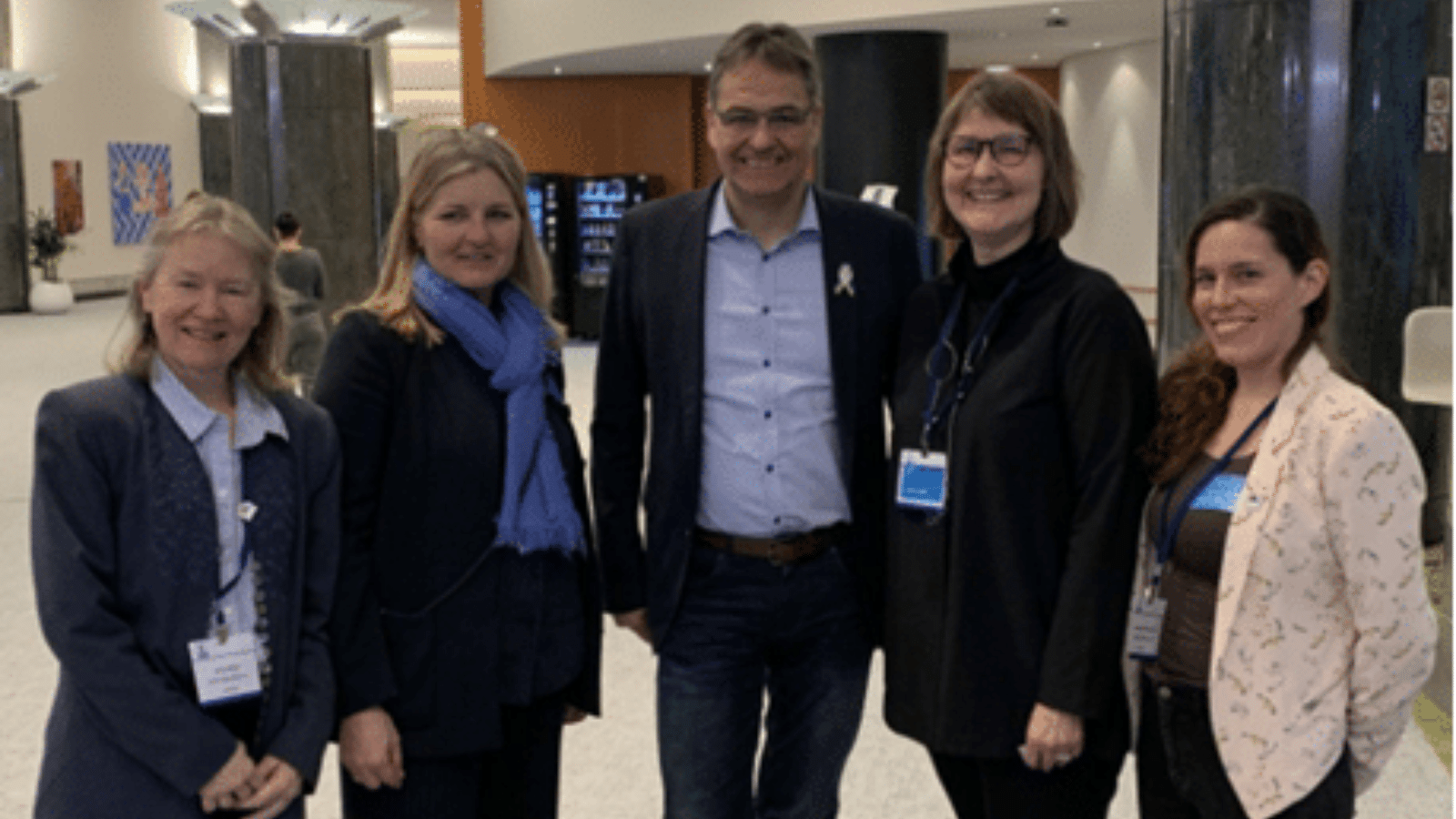
Ruth Biller (far-left), co-founder of ARVC Self-Help, and fellow RDW 2023 participants meet with German MEP Peter Liese.
“But most meaningful was being with and talking to so many wonderful people, including other patient advocates and the EURORDIS team, who all have the same goal: to improve the lives of people living with a rare disease.”
Since RDW 2023, Ruth has remained in contact with one of the German MEPs she met, and he recently invited her to an online meeting on cardiovascular diseases. Deploying her personal insights on rare heart diseases, Ruth is now working to make sure rare diseases aren’t overlooked in EU and national healthcare plans.
Strengthening the collective voice
RDW goes beyond community building, as it builds a sense of solidarity that strengthens the collective voice of Europe’s rare disease advocates.
Dr Vittoria Spinosa, Scientific Director of the Dravet Syndrome Foundation in Spain, attended RDW 2023 and highlighted the importance of collective advocacy. “One of our main aims is to give voice to all patients through different projects,” she noted.
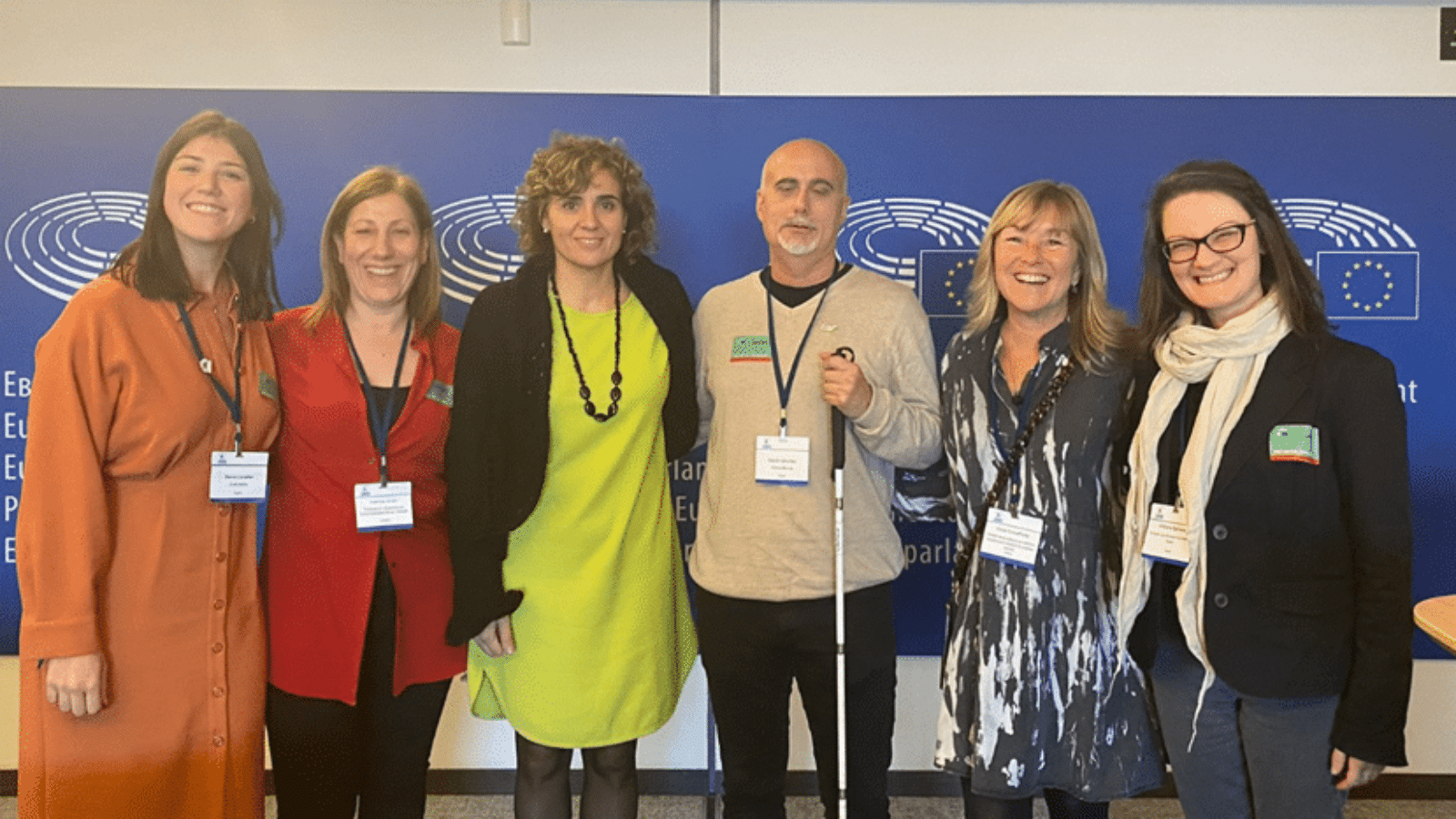
Dr Vittoria Spinosa, former Scientific Director of the Spanish Dravet Syndrome Foundation, and fellow RDW 2023 participants meet with Spanish MEP Dolors Montserrat
“RDW helped me realise that advocates across rare disease communities share many challenges and are fighting for common goals,” Vittoria reflected. “Only by joining our forces can we strengthen our voice to drive critical changes in early diagnosis, orphan drug development, and patient wellbeing.”
Through RDW’s training programme, advocates not only gain advocacy skills but also strengthen a united voice to achieve meaningful progress.
Empowering advocates year-round
In preparation for RDW, participants undertake a rigorous pre-training programme with online modules and webinars on EU health policy, advocacy strategies, and methods for engaging policymakers—ensuring they arrive in Brussels ready to make a lasting impact.
For those inspired by RDW’s mission, EURORDIS’ Open Academy provides an opportunity to stay engaged year-round. Through accessible online courses, the Open Academy equips rare disease advocates across Europe with the knowledge and tools needed to lead change within their own communities.
Julien Poulain, Communications Manager
